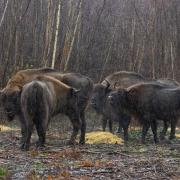Rural areas are finally going to get the internet connection they need to achieve their full potential
Those of us living and working in rural areas and suffering slow or non-existent broadband services are now a step closer to achieving better connections.
In the Queen’s Speech, there was welcome confirmation that we will finally get the legal guarantee of internet connection for all premises in rural areas.
The Digital Economy Bill will, among other measures, enshrine the universal service obligation for broadband in law – meaning that all homes and businesses, wherever they are, will have a right to broadband coverage of at least 10 megabits per second by 2020.
The CLA attends many county shows across the region during the summer months and we have been asking visitors to our stands to tell us about their broadband service. The high percentage of people reporting speeds of less than 10mbps is alas not unexpected and highlights the continuing digital divide between urban and rural areas.
Poor connections are the single biggest barrier to rural businesses achieving their potential. In rural areas, 1.5 million, or nearly 50 per cent, of rural premises are connected by lines that are unable to receive speeds higher than 10Mbps and one in five rural premises are unable to receive speeds higher than 5Mbps.
It will be difficult to reach 100 per cent of people and businesses, especially those in remote areas, through fibre technology alone and other technologies, including satellite and mobile broadband will be needed.
Some communities are taking matters into their own hands, with groups and businesses making their own investments in getting connected and it is important that these schemes are empowered and supported.
One ‘build and benefit’ broadband project in Cumbria, for example, has connected 58 rural properties via a 15km fibre network. The scheme was led by community volunteers with help from the local parish council and funded by grants and community contributions.
A number of local authorities, including Kent County Council, have been taking part in the Government’s Satellite Broadband Voucher Scheme, aimed at those with a broadband service of less than 2Mbps.
In Kent, the voucher scheme provides access to subsidised satellite or fixed wireless broadband connection and is operated by Broadband Delivery UK (BDUK) and administered by Kent County Council. To find out if you are eligible for the scheme, go to www.kent.gov.uk/broadband.
The urban rural divide is also evident in mobile coverage. Only 31 per cent of people in rural areas can expect to get ‘all networks’ mobile coverage indoors, compared to 91 per cent in urban areas.
It is important to ensure that rural areas get the mobile coverage they desperately need, but the CLA is concerned about the impact of new measures announced in The Digital Economy Bill which propose to impose new rules on how communications infrastructure providers have access to land for siting their equipment under a revised Electronics Communications Code.
At present, landowners and farmers can negotiate a commercial agreement for access to their land for siting mobile phone masts. These new measures could give mobile companies the power to acquire land or gain access to land by compulsion. Compulsory purchase should always be a measure of last resort, and where it is used it should be scrupulously fair preserving the interests of those who are providing the land.
The CLA recently brought together landowners, industry experts and policy makers to discuss how rural communities and businesses can secure better broadband and mobile connections now, as well as exploring the technologies and practical actions needed to meet the connectivity needs of the future.
The findings will be part of a wider report unveiled at the CLA’s Rural Business Conference in December, which will focus on unlocking investment and potential in the rural economy.
The CLA has campaigned for many years for a legal right to broadband; now that the Universal Service Obligation is set to become law, we need to make sure it delivers simply and effectively for rural communities.



























